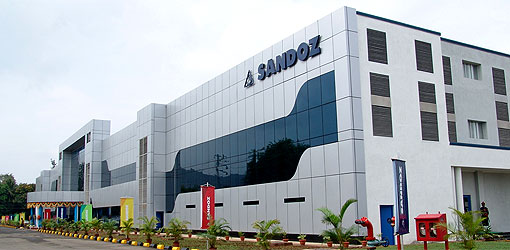No news anytime soon on Sandoz sale, says Novartis

Novartis chief executive Vas Narasimhan has downplayed any chances of swift decision on the future of its generics business Sandoz, saying that a decision on the possible sale of the unit may not come until the last quarter of the year.
The comments came despite rumours of another private equity bid for Sandoz, with Bloomberg saying it had got wind of a $25 billion combined bid from investment groups Blackstone and Carlyle, with others including Advent International, Hellman & Friedman and KKR also said to be circling.
Novartis said last October that it was looking into the future of Sandoz, which could include a range of options between retaining and selling the business, and in November reports emerged of a possible $21.6 billion bid from EQT and the German Struengmann family.
The unit has been suffering from pressure on sales and operating profits in the last few years, but in its fourth-quarter results, Novartis said Sandoz finances had "stabilised" despite pricing pressures – especially in the US – and COVID-19's impact on demand.
There's a dearth of new product launches coming up however, and the company is expecting US revenues to continue declining this year which analysts have suggested could make a sale more difficult, as could untangling Sandoz from Novartis' broader manufacturing operations.
Much-anticipated new products like biosimilars of AbbVie's immunology blockbuster Humira (adalimumab) and Biogen's multiple sclerosis therapy Tysabri (natalizumab) are not due to appear until late 2023 or early 2024, according to Sandoz' CEO Richard Saynor.
The launch of those biosimilars "should start accelerating both our top line and clearly the margin expansion for the business," he added.
Aside from Sandoz' future, Novartis reported a 5% increase in sales of its innovative medicines to $10.7 billion, with group revenues up 4% to $13.2 billion, a little shy of analysts' expectations.
Psoriasis blockbuster Cosentyx (secukinumab) continued to deliver with a 12% rise in sales to $1.2 billion – albeit slightly below analyst expectations – and there was also a 33% gain for heart failure therapy Entresto (valsartan/sacubitril) to $949 million.
Gene therapy for spinal muscular atrophy (SMA) Zolgensma (onasemnogene abeparvovec) also gathered pace with a 35% increase to $342 million, while MS therapy Kesimpta (ofatumumab) added $147 million to the pot, a rise of 14%.
Novartis also revealed during the update that it had discontinued development of CEE321, a pan-JAK inhibitor that had been in early clinical testing for atopic dermatitis, because of an "unfavourable benefit/risk profile."













